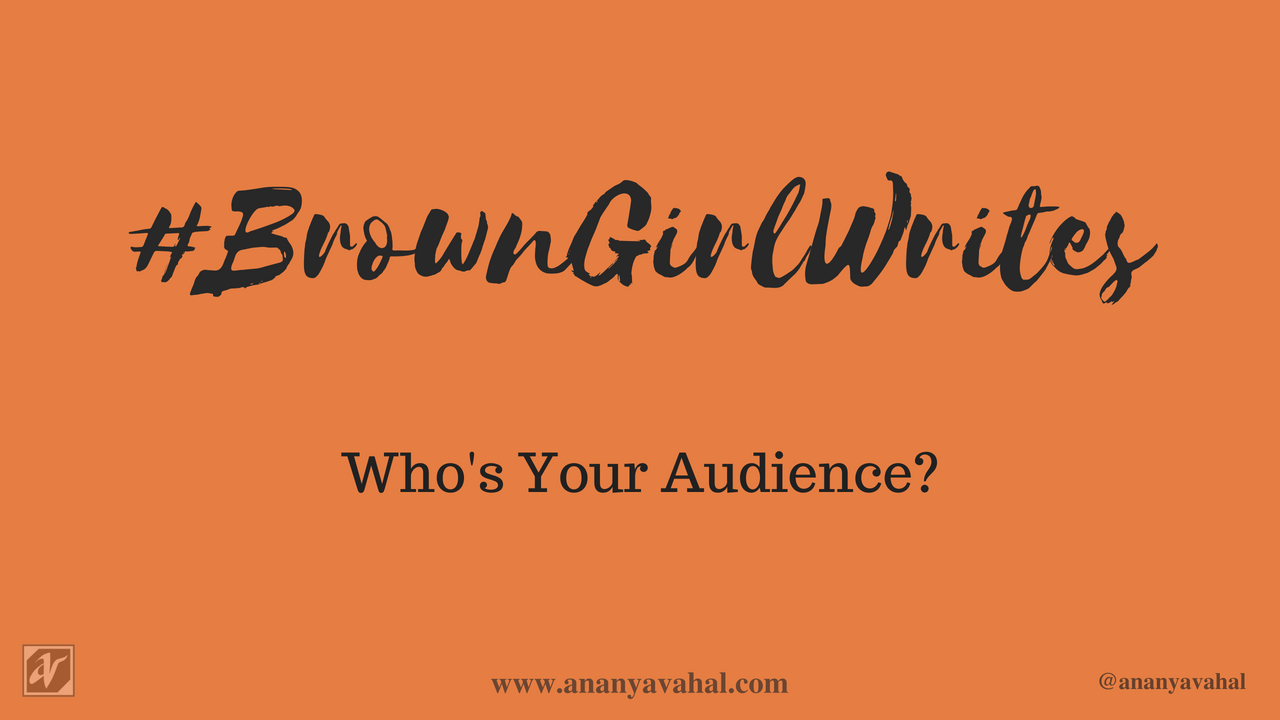|
As a writer, the number one thing you have be cognizant of is “who is your audience?” You have to know who you’re writing for and who’s going to be interested in reading and hopefully spending money on your writing. As a writer of color, who is your audience? How do you determine who you are writing for?
I recently had a conversation with a South Asian-American woman who wrote a great piece on Medium about the lack of humor in South Asian-American literature. She told me that, unfortunately, she has to write for a white audience because she wants her books to sell in the United States. This meant that she needed to water down her stories to make them easier for white readers to digest. I was shocked and disheartened to hear her say this, especially, because there are so many South Asian-Americans in the United States like me who are eager to read and buy works written by other South Asian-Americans about our culture. There are also literally billions of people in South Asia who have been exposed to American culture enough to be interested in her writing. Why should she or any other writer of color feel the need to make their stories less authentic in order to cater to white readers? When I read books by most American writers of color like Roxane Gay, Scaachi Koul, Issa Rae, Angie Cruz, Eddie Huang, and so many more, I don’t feel they've “white washed” their stories to appeal to the White audience. I love the detail into which Angie Cruz goes when talking about Dominican-American culture using Spanglish and exploring spiritual traditions in her book Soledad. I love the unapologetic tone which Eddie Huang uses to show us what it’s like to grow up in a traditional Taiwanese-American family in his memoir. These details are what make their stories feel real to me as a reader even though I’m not Dominican-American and I didn't grow up in a Taiwanese-American home. Through good writing, I learn about new cultures. If I don't understand anything they say, I look it up. That is what reading is supposed to do. It's supposed to help you open your mind and learn about people who lived different lives from your own. Incorporating the languages, foods, scents, and traditions of your culture to create a detailed world for the reader to immerse themselves into is what makes good writing, not watering it down for those who might not be familiar with your culture. That makes generic writing. In the end, there is plenty of literature out there for White readers to relate to. Also White writers write for White readers. They don't worry about whether their stories will be understandable or interesting to people of color. So, as writers of color, we should also be able to write about and for our own community without worrying about what white people will think. Our own community is our most important audience. I know I’ve said this many times, but it’s time we write our own stories on our own terms. The more stories we write on our own terms, the harder it will become for publishing industry to ignore us.
Thank you for reading! Please share your opinions on this topic with me in the comments below so we can continue this important discussion.
You can sign up for my newsletter at the bottom of the page for updates on my writing, my workshops, and my events. Next Wednesday’s blog will be more #browngirlwrites stories. Until then… Happy Writing! :) Find me on social media. Links at the bottom of the page ??
0 Comments
Leave a Reply. |
AuthorThese blogs explore my writing process and highlight my favorite writers and books. Archives
June 2022
Categories
All
|


 RSS Feed
RSS Feed
















